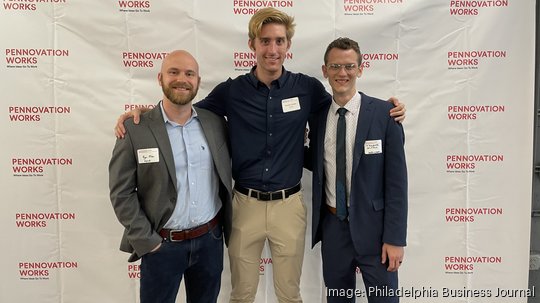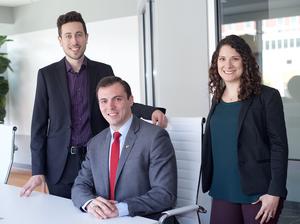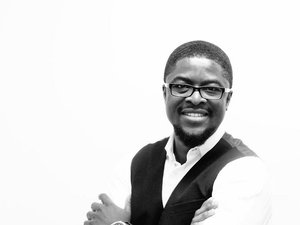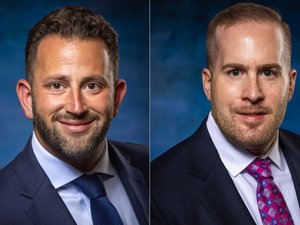
After taking top prize this week at a Pennovation Works accelerator packed with innovative startups, Medicratic's founders are thinking about how their software can transcend industries.
The six-month-old company, founded by medical students Alexander Thomson and Tanner Mitton, uses artificial intelligence and machine learning to make the process of selecting applicants for medical residencies more efficient. Medicratic says its software can save program directors hundreds of hours while picking the most well-suited candidates for residency programs. The team competed against 10 other startups following a six-week accelerator at Pennovation Works in Grays Ferry, taking home a $7,000 grand prize and six-month Pennovation Center membership to use the space for product development.
The topic of residencies and the question of how to get into a top program often dominates conversations among medical students, Thomson said. However, the more he explored the application process, the more he found an "incredibly broken system." Program directors receive a volume of applications so large, it can be difficult to consider each one.
"Ultimately, this is a problem that, given recent advances in machine learning and then using more conventional data analytics tools, this question of 'What do you value in an applicant?' could actually be separated from 'How much time do you have to read applications?' That's the genesis of the business," said Thomson, a student at the Perelman School of Medicine at the University of Pennsylvania.
Medicratic's co-founders are somewhat of an unlikely combination. Thomson is from London and received his master's degree in epidemiology from the University of Oxford before making his way to Penn. Mitton received a degree in economics from Brigham Young University and is now at medical school at the University of Texas Southwest Medical Center. The two met while working at the same Medical College Admissions Test prep center, and they officially founded the company in January.
Following a period of beta testing, the two have quickly brought their product to market and recently secured their first client, though they declined to identify it. Right now, they are primarily targeting individual residency programs and fellowship programs, but Mitton said major health care systems and academic institutions can also benefit from Medicratic.
Though machine learning and artificial intelligence are naturally inhuman, Thomson and Mitton's software is meant to evaluate candidates holistically, as most residency programs look to do. It's able to quantify qualitative characteristics for each candidate.
"That's really what our software aims to do is look at someone as a person rather than just what scores they get on their board exams," Thomson said. When reviewing thousands of applications, it can be easy to reduce them to numbers, but Mitton and Thomson's technology looks to do the opposite.
And they don't want to stop in the health care sector.
"Though we started this with residency programs, we realize now there are lots of other industries that have the same problem," Mitton said. "So there is the potential to really help people in many different parts of the market beyond just medical education."
The two mentioned college admissions, residencies for law schools and general job applications as potential areas of expansion. Thomson said that would likely mean the development of new software tailored toward different industries.
Thomson and Mitton are ready for that challenge. They are currently planning fundraising and talking to investors with the hopes of raising a round in the seven-figure range to fund the next stage of growth. That would mean hiring and adding to their current team of three, as well as exploring different industries to use the software.
The team currently works remotely and will utilize the six-month membership at Pennovation Works as a home base moving forward. From there, Thomson said they will determine if a physical office footprint is needed, but said Philadelphia — and Pennovation Works, specifically — would be "a good candidate" to host a permanent headquarters.







